“Zambian Unites for Press Freedom”
… Journalists gather to champion environmental reporting supported by evidence
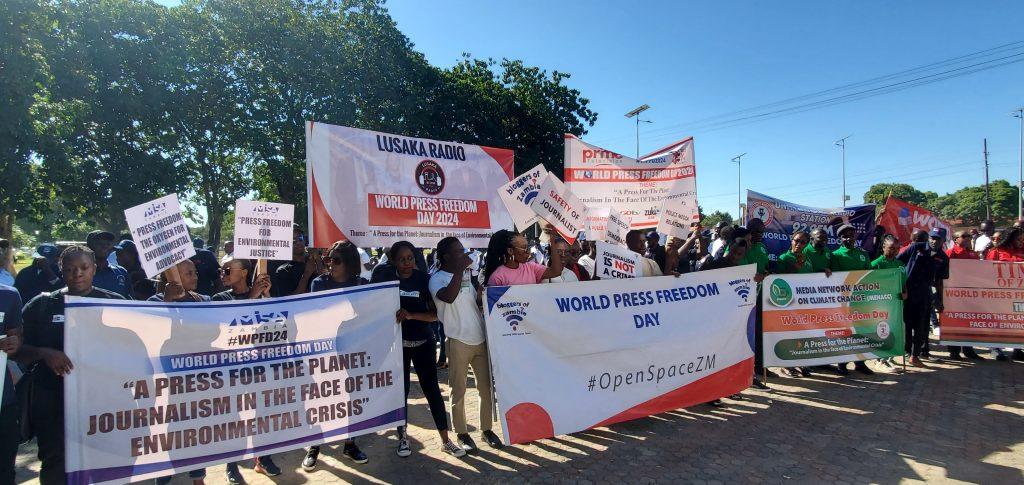
By Francis Maingaila
Lusaka, Zambia 24- (03-05-2024) – Journalists from across Zambia’s 10 provinces gathered on May 3, 2024, to commemorate World Press Freedom Day (WPFD), emphasizing the need for solution-based reporting backed by evidence and free from bias.
In a speech, Ministry of Information and Media (MIM) Permanent Secretary Thabo Kawana acknowledged the challenges faced by journalists, including prolonged periods without pay and the need to use personal resources for work-related expenses.
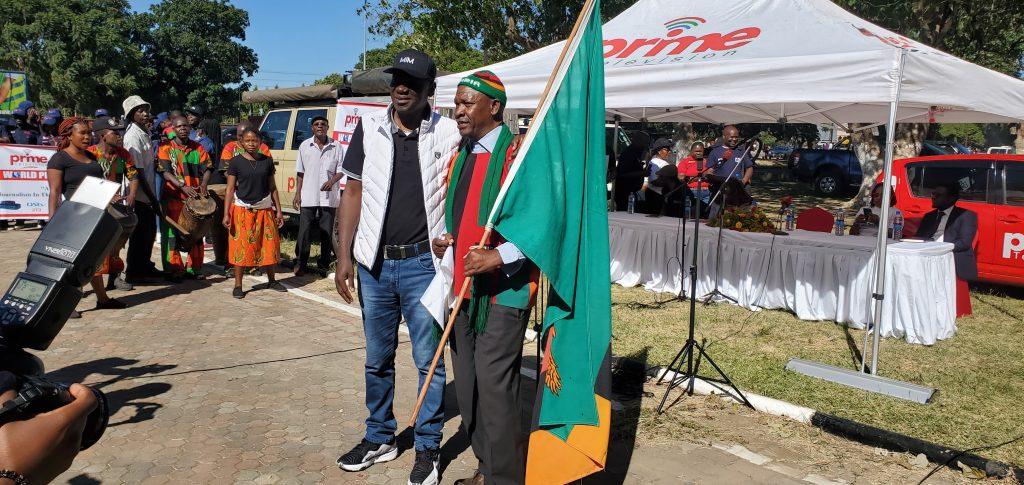
He stressed the importance of upholding press freedom as a fundamental human right, ensuring journalists can report on environmental issues without fear of censorship.
“The government recognizes the critical role that a free and independent press plays in promoting transparency, accountability, and good governance,” Kawana said.
“We pledge to support press freedom, ensure journalists’ safety, promote transparency, and take action on environmental issues.”
Kawana pledged government support for both public and private media, allocating budget and advertising opportunities to ensure their viability and expansion.
Additionally, Kawana expressed an urgent need partner with stakeholders to tackle environmental challenges, aiming for positive change and safeguarding the media’s crucial societal role, especially in addressing environmental issues and advocating for sustainability.
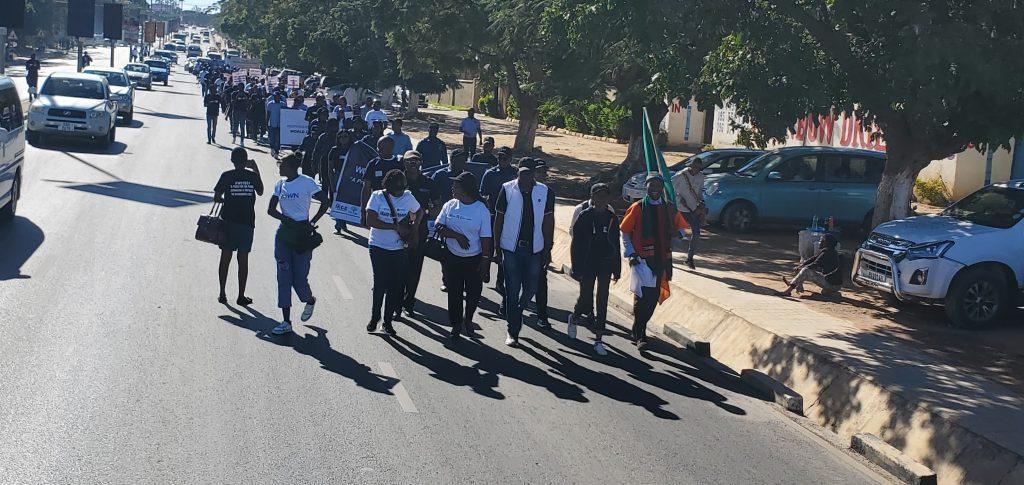
He highlighted the need for continued support and protection for the media sector to ensure the public’s right to information and hold those in power accountable.
“Press freedom is essential for a healthy democracy, and we must work together to ensure that journalists can report freely and safely,” Kawana emphasized.
The commemoration included a march past and panel discussions on the importance of press freedom and solution-based reporting.
During the World Press Freedom Day event, Dr. Samson Kantini, UNESCO Representative, emphasized the significance of press freedom and environmental reporting.
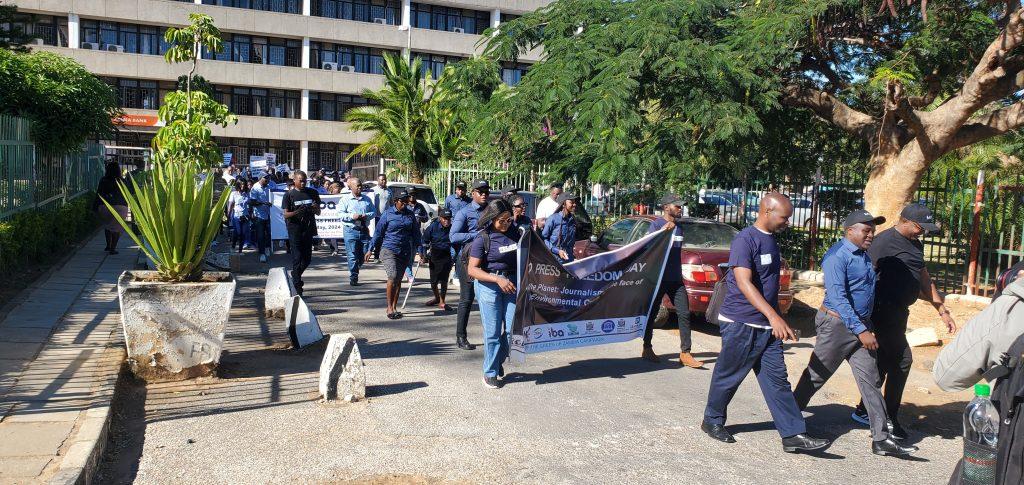
He highlighted UNESCO’s role in advancing media development and press freedom through its Communication and Information program.
Dr. Kantini recognized Zambia’s challenges with climate change and environmental reporting, stressing the role of journalism in tackling environmental crises.
He noted UNESCO’s contributions to Zambia, including the launch of a climate change guidebook for journalists, establishment of community media outlets, and designation of the first Man and Biosphere Reserve.
Dr. Kantini emphasized the importance of community media and grassroots initiatives in disseminating indigenous knowledge and addressing local environmental challenges.
He mentioned UNESCO’s support for projects aimed at mitigating poaching, deforestation, and water scarcity while promoting sustainable livelihoods and agriculture.
Highlighting the urgency to address climate change and protect freedom of expression, Dr. Kantini emphasized journalism’s crucial role in combating disinformation and preserving democracies.
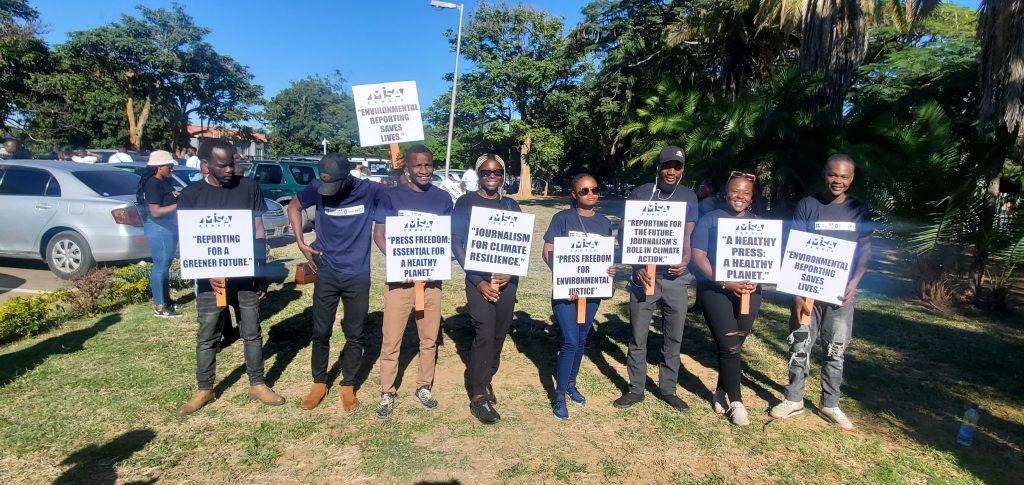
He called for action to protect journalists, enhance media education, and hold social networks accountable for promoting accurate information.
Dr. Kantini concluded by affirming UNESCO’s commitment to addressing environmental challenges and promoting press freedom for the betterment of societies and the planet.
Similarly, UN Representative Ali Saili emphasized the crucial role of media in national development and environmental sustainability.
Saili acknowledged the critical role of the media in national development and achieving societal equity, highlighting the theme of the 2024 World Press Freedom Day, which focuses on journalism’s role in addressing the environmental crisis.
“The media plays a vital role in promoting environmental sustainability and inspiring action against climate change,” Saili emphasized.
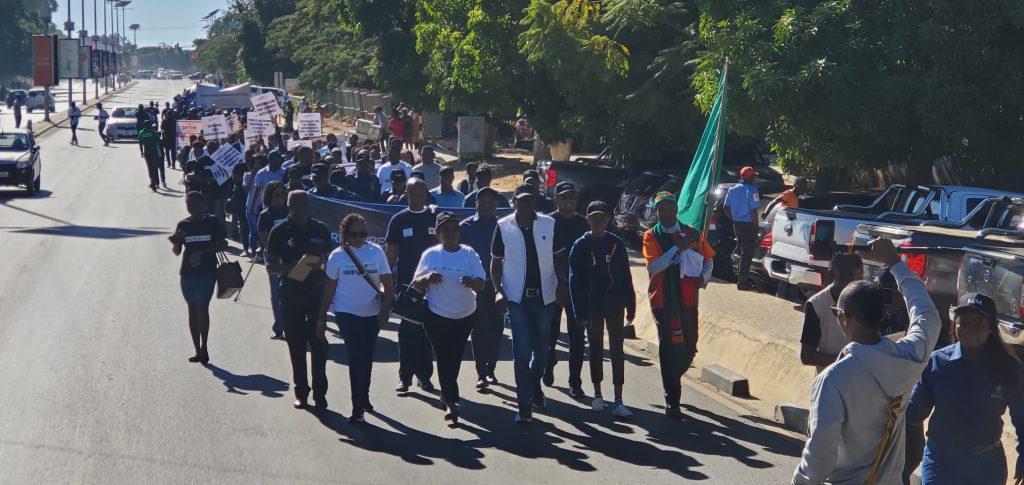
“Journalists and media workers are essential in informing the public about environmental emergencies and holding those in power accountable for their actions.”
Saili stressed the importance of a free and independent press in addressing environmental challenges, but also highlighted the risks and threats faced by environmental journalists, including violence and censorship.
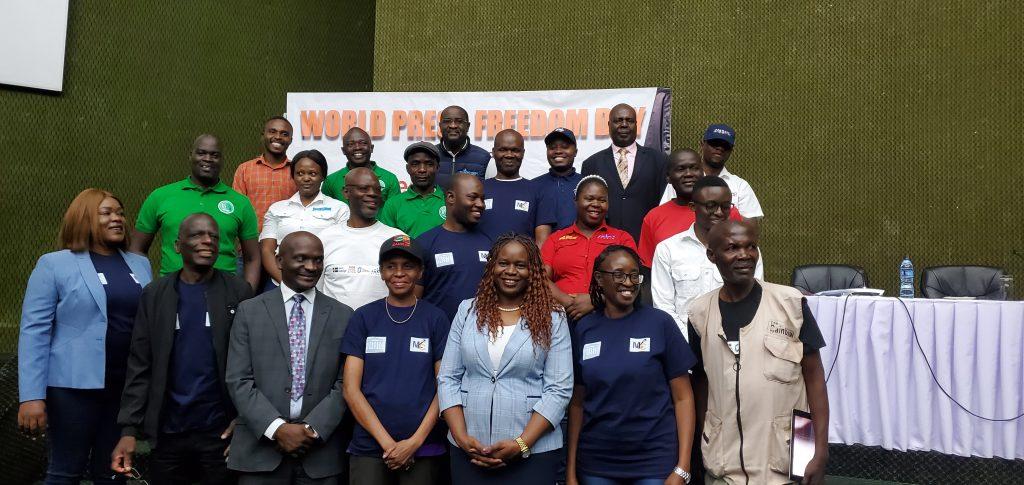
“Governments, the private sector, and civil society must uphold press freedom and support journalists worldwide,” Saili urged.
“We must ensure that journalists can report freely and safely, without fear of reprisal or intimidation.”
He said supporting press freedom and protecting journalists will ensure that the public has access to accurate and timely information about environmental issues, and that those in power are held accountable for their actions.
“This is crucial for achieving environmental sustainability and promoting national development,” he explained.
John Chola, Vice President of the WPFD Local Organising Committee, highlighted the theme “Press for the Planet: Journalism in the Face of Environmental Crisis,” underscoring the critical role of journalism in addressing environmental challenges globally.
Chola emphasized that journalism plays a vital role in raising awareness about environmental issues, holding those in power accountable, and inspiring action to address the environmental crisis.
He mentioned the various activities conducted by the local organizing committee to mark the occasion, including tree planting, which symbolizes the commitment to environmental sustainability.
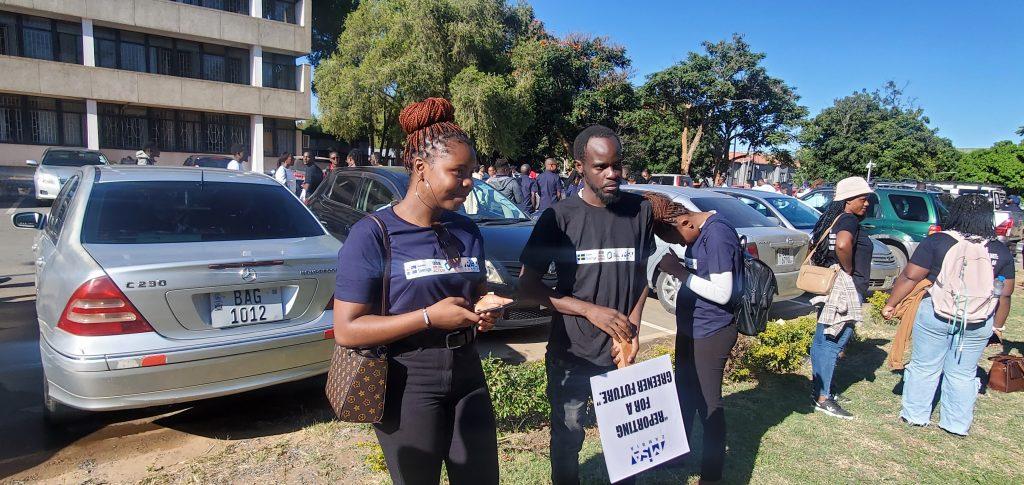
Chola urged the corporate sector to support media institutions financially, recognizing the crucial role they play in promoting environmental awareness and accountability.
He also called for government intervention to safeguard press freedom and protect journalists from harassment, intimidation, and violence.
“Collaboration between government and media stakeholders is essential in organizing events like World Press Freedom Day,” Chola stressed.
“We must work together to ensure that journalists can report freely and safely, and that the public has access to accurate and timely information about environmental issues.”
He stated that by championing press freedom and safeguarding journalists, we can ensure the public remains informed and actively involved in tackling environmental issues, while also holding those in authority accountable for their deeds.
“This is crucial for achieving environmental sustainability and promoting national development,” he said.
Media Liaison Committee Chairperson Enerst Chanda commended the government for enacting the access to information law, a significant milestone after three decades of advocacy.
He also welcomed the repeal of the defamation of the president law, both of which enhance journalism in Zambia.
However, Chanda observed that media institutions are facing financial difficulties, exacerbated by the COVID-19 pandemic.
Climate change poses another significant challenge, highlighted by the current drought.
He emphasized the need for continued advocacy to ensure the government implements laws effectively and extends incentives to the entire media fraternity.
Chanda urged fellow journalists to prioritize environmental reporting and raise awareness about the effects of climate change and the need for societal action.
He advocated for institutions, including the government, to invest in specialized environmental reporting training for journalists to address climate change effectively.
“Let us shift our focus from politics to addressing real issues like climate change,” Chanda emphasized, highlighting the critical role of media in advocating for change.
He expressed gratitude to the organizing committee and acknowledged the efforts of stakeholders in achieving successes, including the enactment of the access to information law.
Supporting press freedom, protecting journalists, and prioritizing environmental reporting can ensure that the public is informed and engaged in addressing environmental challenges, and that those in power are held accountable for their actions.
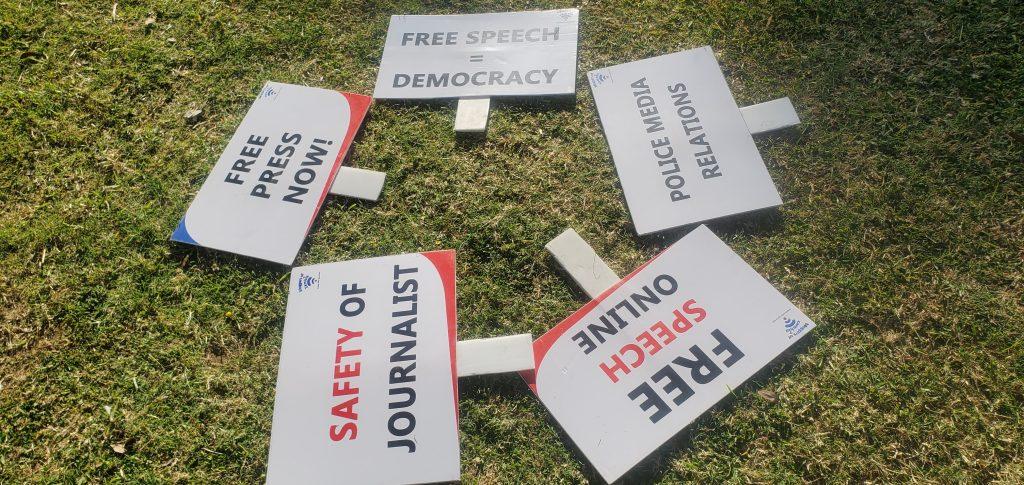
World Press Freedom Day is celebrated annually on May 3 to raise awareness about the importance of press freedom and the need to protect journalists and media outlets from censorship, harassment, and violence.
